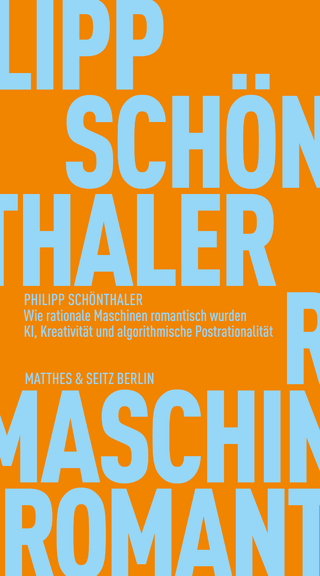
A Grammar of Qiang
With annotated texts and glossary
Seiten
2003
de Gruyter Mouton (Verlag)
978-3-11-017829-6 (ISBN)
de Gruyter Mouton (Verlag)
978-3-11-017829-6 (ISBN)
The series builds an extensive collection of high quality descriptions of languages around the world. Each volume offers a comprehensive grammatical description of a single language together with fully analyzed sample texts and, if appropriate, a word list and other relevant information which is available on the language in question. There are no restrictions as to language family or area, and although special attention is paid to hitherto undescribed languages, new and valuable treatments of better known languages are also included. No theoretical model is imposed on the authors; the only criterion is a high standard of scientific quality.
This book is a full reference grammar of Qiang, one of the minority languages of southwest China, spoken by about 70,000 Qiang and Tibetan people in Aba Tibetan and Qiang Autonomous Prefecture in northern Sichuan Province. It belongs to the Qiangic branch of Tibeto-Burman (one of the two major branches of Sino-Tibetan). The dialect presented in the book is the Northern Qiang variety spoken in Ronghong Village, Yadu Township, Chibusu District, Mao County. This book, the first book-length description of the Qiang language in English, is the result of many years of work on the language, and is as typologically comprehensive as possible. It includes not only the reference grammar, but also an ethnological overview, several fully analyzed texts (mostly traditional stories), and an annotated glossary. The language is verb final, agglutinative (prefixing and suffixing), and has both head-marking and dependent marking morphology. The phonology of Qiang is quite complex, with 39 consonants at seven points of articulation, plus complex consonant clusters, both in initial and final position, as well as vowel harmony, vowel length distinctions, and a set of retroflexed vowels. The grammar also is complex, with a paradigm of eight direction marking verbal prefixes, and two paradigms for person marking, one for actor, one for non-actor, and a variety of other verbal prefixes and suffixes, as well as definite and number marking on nouns. Noun phrases take classifiers and relational pospositions as well.
This book is a full reference grammar of Qiang, one of the minority languages of southwest China, spoken by about 70,000 Qiang and Tibetan people in Aba Tibetan and Qiang Autonomous Prefecture in northern Sichuan Province. It belongs to the Qiangic branch of Tibeto-Burman (one of the two major branches of Sino-Tibetan). The dialect presented in the book is the Northern Qiang variety spoken in Ronghong Village, Yadu Township, Chibusu District, Mao County. This book, the first book-length description of the Qiang language in English, is the result of many years of work on the language, and is as typologically comprehensive as possible. It includes not only the reference grammar, but also an ethnological overview, several fully analyzed texts (mostly traditional stories), and an annotated glossary. The language is verb final, agglutinative (prefixing and suffixing), and has both head-marking and dependent marking morphology. The phonology of Qiang is quite complex, with 39 consonants at seven points of articulation, plus complex consonant clusters, both in initial and final position, as well as vowel harmony, vowel length distinctions, and a set of retroflexed vowels. The grammar also is complex, with a paradigm of eight direction marking verbal prefixes, and two paradigms for person marking, one for actor, one for non-actor, and a variety of other verbal prefixes and suffixes, as well as definite and number marking on nouns. Noun phrases take classifiers and relational pospositions as well.
Randy LaPolla is Associate Professor at the City University of Hong Kong.
"Like any superbly written descriptive grammar, this book will be of great value to typologist and linguist in general, but in particular to Sino-Tibetanists and anyone interested in Qiang language or culture. It is certain to remain the standard reference on this language for many years to come."Edward J. Vajda in: he Linguistlist
"Like any superbly written descriptive grammar, this book will be of great value to typologist and linguist in general, but in particular to Sino-Tibetanists and anyone interested in Qiang language or culture. It is certain to remain the standard reference on this language for many years to come."
Edward J. Vajda in: he Linguistlist
| Erscheint lt. Verlag | 15.12.2003 |
|---|---|
| Reihe/Serie | Mouton Grammar Library [MGL] ; 31 |
| Zusatzinfo | 4 b/w ill., 10 b/w tbl., 3 plates |
| Verlagsort | Basel/Berlin/Boston |
| Sprache | englisch |
| Gewicht | 805 g |
| Themenwelt | Geisteswissenschaften ► Philosophie ► Sprachphilosophie |
| Geisteswissenschaften ► Sprach- / Literaturwissenschaft ► Literaturwissenschaft | |
| Geisteswissenschaften ► Sprach- / Literaturwissenschaft ► Sprachwissenschaft | |
| Schlagworte | Chinesisch; Grammatik • Hardcover, Softcover / Allgemeine und Vergleichende Sprachwissenschaft • HC/Allgemeine und Vergleichende Sprachwissenschaft • HC/Sprachwissenschaft, Literaturwissenschaft/Sonstige Sprachen, Sonstige Literat • Sprache • Sprachtypologie • Tibetisch |
| ISBN-10 | 3-11-017829-X / 311017829X |
| ISBN-13 | 978-3-11-017829-6 / 9783110178296 |
| Zustand | Neuware |
| Haben Sie eine Frage zum Produkt? |
Mehr entdecken
aus dem Bereich
aus dem Bereich
Macht und Legitimität politischer Sprache im Prozess der europäischen …
Buch | Softcover (2023)
Nomos (Verlag)
CHF 103,60
KI, Kreativität und algorithmische Postrationalität
Buch | Softcover (2024)
Matthes & Seitz Berlin (Verlag)
CHF 23,90
Wie die Menschheit zu ihrer größten Erfindung kam
Buch | Softcover (2022)
C.H.Beck (Verlag)
CHF 25,20


